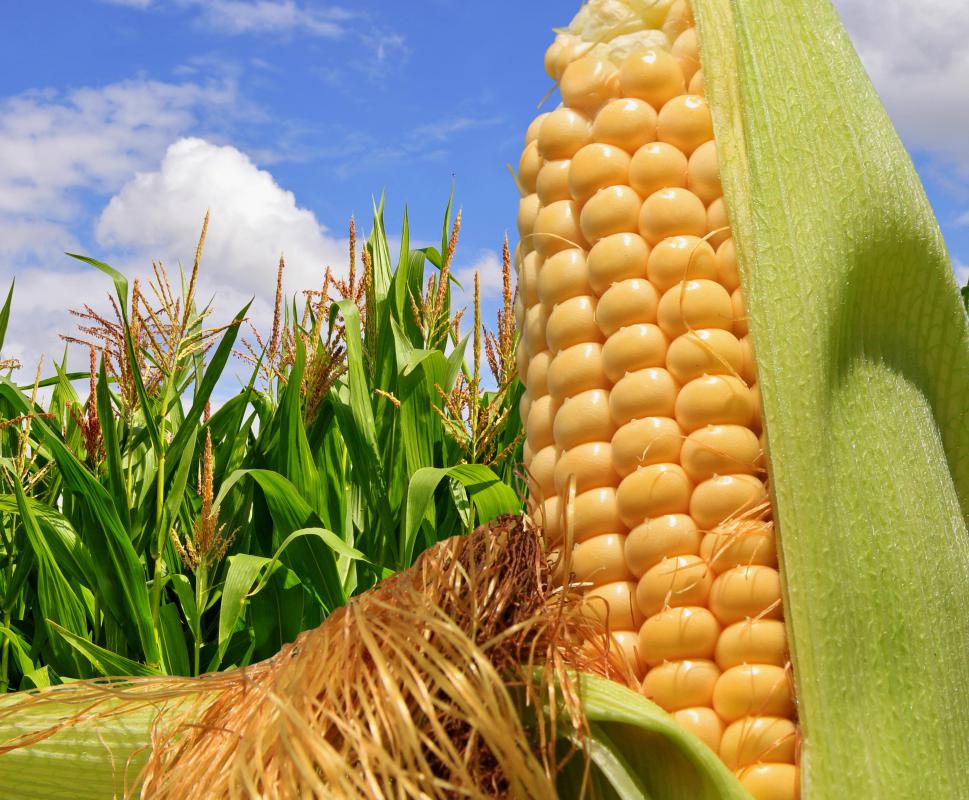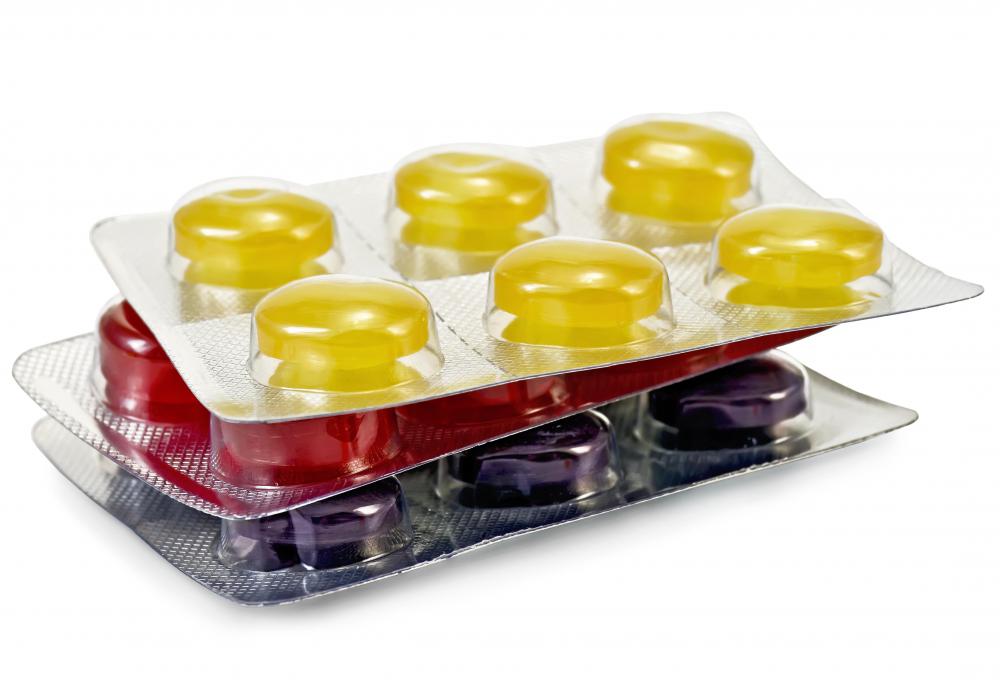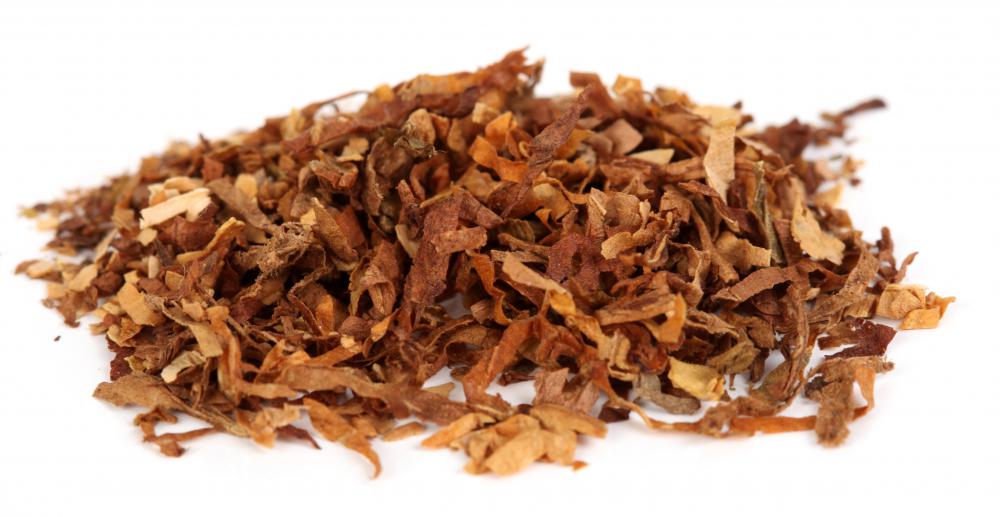At DelightedCooking, we're committed to delivering accurate, trustworthy information. Our expert-authored content is rigorously fact-checked and sourced from credible authorities. Discover how we uphold the highest standards in providing you with reliable knowledge.
What is Glucose Syrup?
Glucose syrup is a popular substitute for sugar. It is more commonly referred to as corn syrup because its main ingredient is usually cornstarch. From a strictly chemical perspective, it is any liquid starch consisting of carbohydrates. In addition to cornstarch, it can be made from any form of starch, including wheat, rice or potatoes.
Because of its successful and easy bonding with dry or solid substances, this syrup is the preferred sweetener for candy, chewing gum, jams, jellies and canned fruit. The main benefit of this syrup over regular granulated sugar is its non-crystallizing properties. It is also praised for its preservative qualities.

Makers of chocolate, ice cream and bakery products also prefer this syrup to sugar. In chocolate and ice cream production, it enhances the smoothness of the finished products. Ice cream makers appreciate the anti-melting feature it adds to the frozen treat. Cream and fruit fillings in bakery products get a lot of their fluffiness and bulk from this type of syrup.

Non-sweet foods and drinks also benefit from glucose syrup. Pan masala, an after-dinner digestive aid consisting of nuts, seeds, spices and herbs that is popular in the Middle East and Southeast Asia, uses this syrup for flavor and preservation. The syrup also aids in fermentation and brewing processes utilized in beer and alcohol production. The high carbohydrate content preferred in processed baby foods is provided by the addition of this sugar substitute as well.

Products not normally associated with sugar or sweeteners, such as pharmaceuticals, also contain this versatile syrup. It is used to flavor cough syrups and to make the coatings on vitamin and medicine tablets. Soothing throat lozenges also depend on it for consistency and balance.
Chewing tobacco is flavored with glucose syrup as well, which makes it appealing to the palate. The tobacco used in cigarette production is treated with this syrup solution to smooth out the taste of the tobacco. Both products also remain fresher longer due to the addition of this sweet additive.
Non-consumables, such as leather, benefit from glucose syrup used in the tanning process. Dipping leather in this syrup gives it an appealing, glossy shine and makes the grain look fine. The syrup also makes the leather more pliable.

When incorporated into oil extraction procedures, glucose syrup aids in the thickening process and adds gumming properties. Along those same lines, it stabilizes glues and adhesives and aids in keeping concrete from hardening too quickly. Even shoe polish benefits from adding a bit of glucose syrup to prevent caking and to produce a glossier shine.
AS FEATURED ON:
AS FEATURED ON:





















Discussion Comments
Fructose is the problem sugar. It chemically processed in the body identically to alcohol without the high. Honey is 50 percent fructose, as is sucrose and high fructose corn syrup (HFCS). They are all in the same category as alcohol.
In small quantities, they are not harmful. In the quantities normally consumed, over time, they are very harmful. It takes little searching on google to find out the details and biochemistry of these sugars.
Glucose, on the other hand, is not only safe but necessary for life. All our energy derives from glucose. Corn syrup is made from glucose, maltose (two glucose molecules) and other more complex starches, all of which are broken down to glucose in the body. I would avoid table sugar (sucrose), HFCS and honey.
It seems a lot of people commenting here are confusing high fructose corn syrup and corn syrup/glucose syrup. From what I'm reading, corn syrup is almost all glucose with no fructose and the fructose is what they are finding is actually a toxin processed similar to alcohol in the body.
Table sugar and HFCS are essentially equal as would be honey all are 50/50 fructose/glucose. So corn syrup may be the best substitute, unless of course, you are allergic.
I have been trying to cut out corn syrup and other corn based ingredients from my diet. I discover hidden ingredients by the way my body reacts to what I have eaten, by accident and ignorance of course. While trying to avoid it, i have discovered it in thousands of products, from vitamins to "health food snacks".
I have severe reactions to corn flour. Corn syrup causes body aches, headaches, sinus, asthma, gas and bloating, as well as fatigue, nausea, acid reflux and confusion. While it is in just about in everything processed, that means we get more than a little in our daily diets.
I have to say, I'm one of those people who tries to avoid corn syrup as much as I can, but I understand that it has its uses. I mean, frankly, anything that makes ice cream good is OK in my book.
I do try to use honey syrup as much as possible, but sometimes you just have to use what you have.
What I really hate though, is the canned fruit that you get just soaked in corn syrup. There's no way that can be healthy, and you lose any potential nutritional value that the fruit had in the beginning.
How are you guys on the whole corn syrup debate? Do you use it, avoid it, hate it?
How would you say that other sweeteners, like rice syrup compares in the glucose syrup vs corn syrup vs sugar debate? I know that honey as a syrup is often said to be the healthiest, but how do other alternatives stack up?
I know there's the whole debate going on about whether glucose or corn syrup is bad for you or not, but I think that a lot of people miss the point.
Anything taken in excess is bad for you, I mean, you could eat apples in excess and they would be bad for you. The same applies to glucose syrups, which unfortunately, some people seem to misunderstand.
I think that when it was first marketed, fructose and glucose syrup was misleadingly called a sugar substitute, which made people think that they could eat as much of it as they liked and not suffer any ill effects. Well, this is obviously just silly.
However, I do understand that glucose syrup is not digested in the same way as sugar, and that there are some inherent issues with that. My whole point is, if you take it in small amounts, in moderation, your body can handle it. It's just when it comes to the larger amounts that it does the serious damage to your body.
While corn syrup, fructose syrup in particular, is an alternative to sugar, it is not a replacement. Many health studies in recent years show that high fructose corn syrup especially is not digested by the body in the same way as sugar itself, and can lead to increased appetite, causing weight gain, diabetes, and other health problems. It is also possible for some individuals to be allergic to corn syrups.
Post your comments